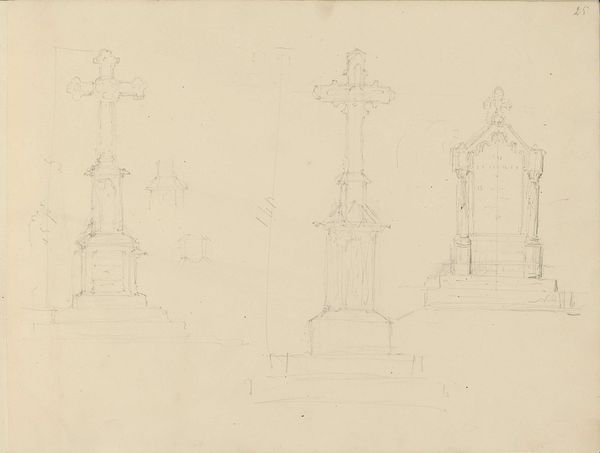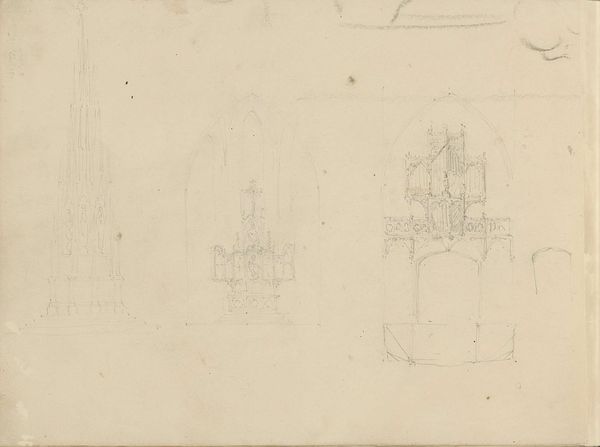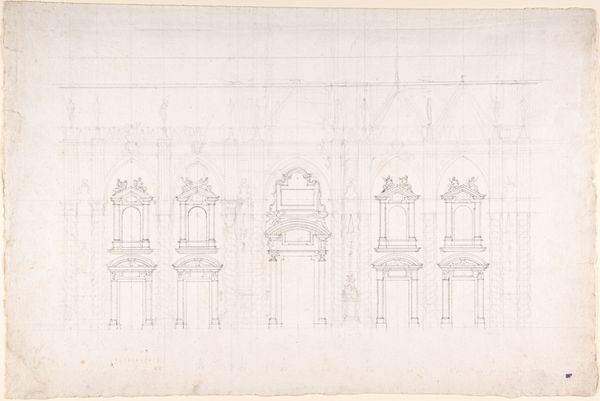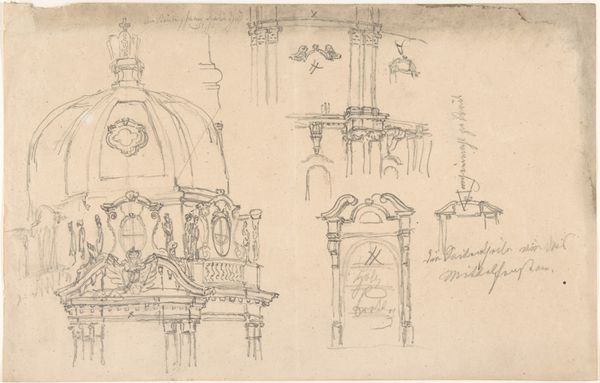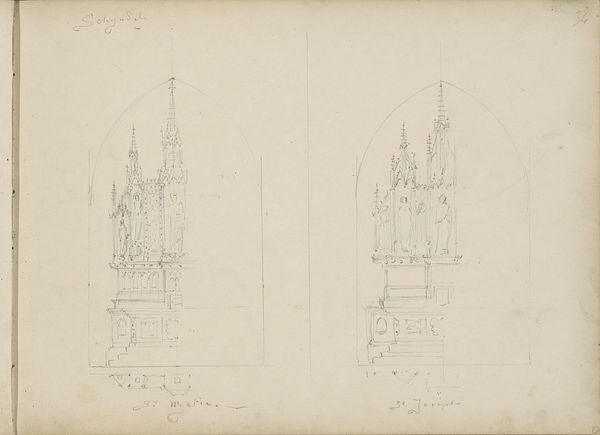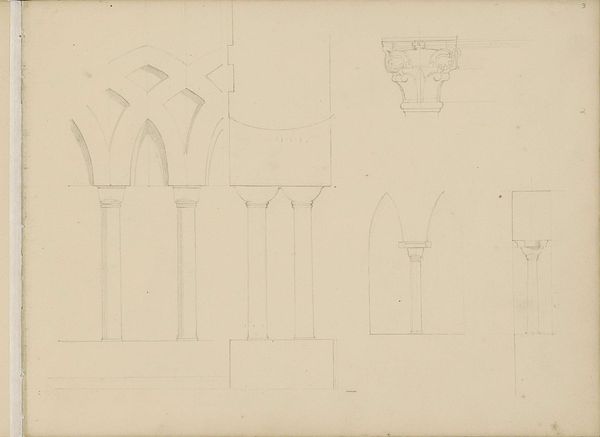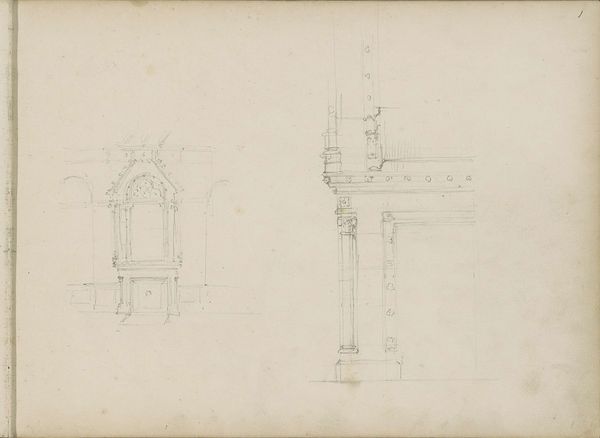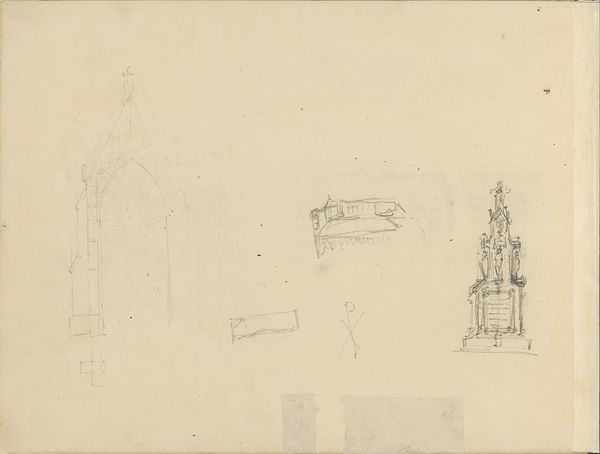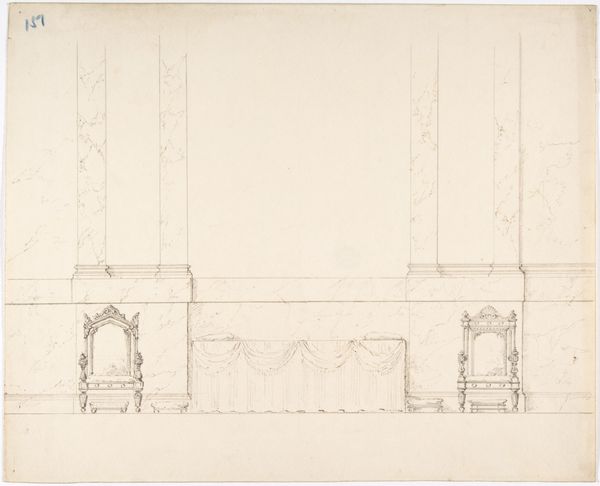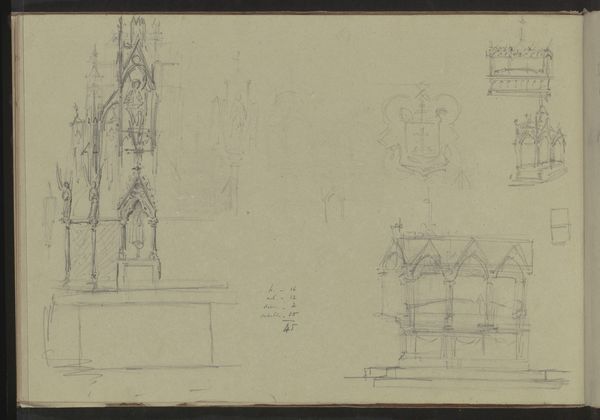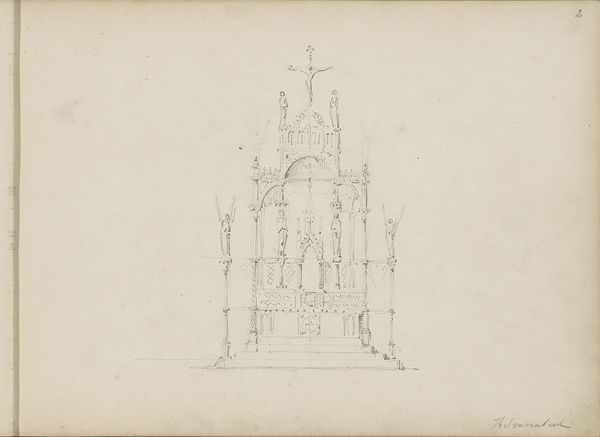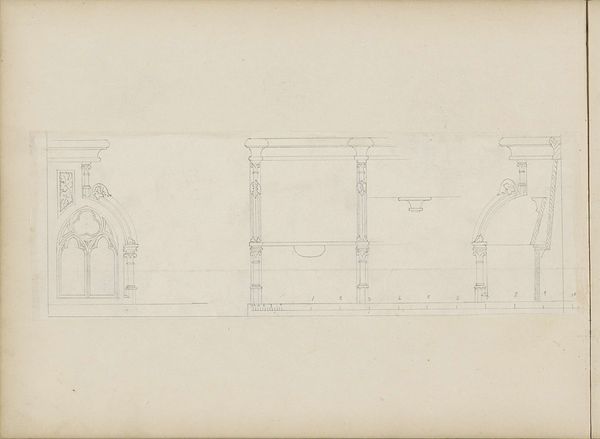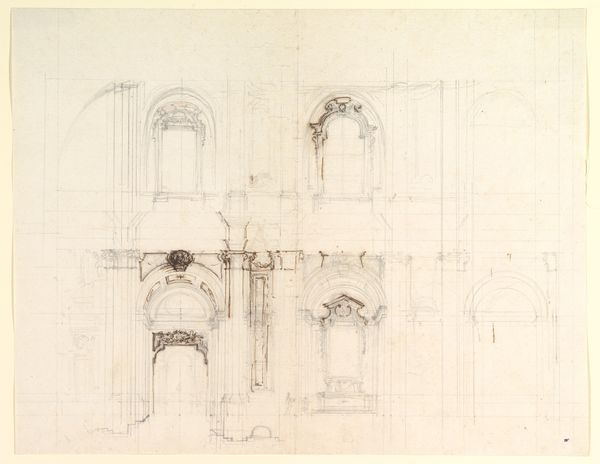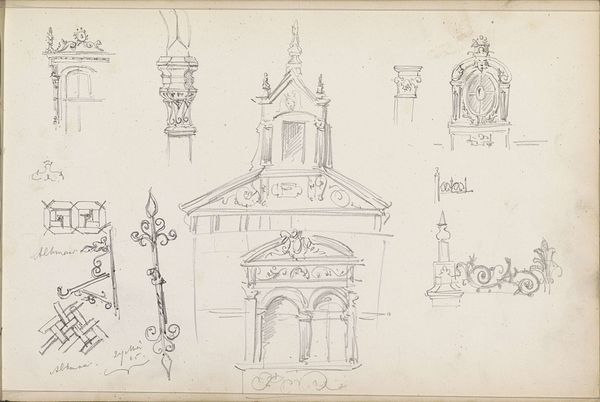
drawing, pencil, architecture
#
drawing
#
aged paper
#
toned paper
#
light pencil work
#
medieval
#
sketch book
#
form
#
personal sketchbook
#
idea generation sketch
#
sketchwork
#
pencil
#
sketchbook drawing
#
academic-art
#
sketchbook art
#
architecture
#
initial sketch
Copyright: Rijks Museum: Open Domain
Editor: So, here we have Pierre Cuypers' "Studieblad met altaren en bladornamenten," from around 1850, a pencil drawing at the Rijksmuseum. The sheet of studies feels light and airy, but the architectural forms, well, they feel heavy and ornate at the same time. What catches your eye here? Curator: Oh, this page sings to me of creative play! Look how Cuypers, around the mid-19th century, isn’t just copying; he’s dialoguing with the past, the medieval past especially, swirling its essence into something fresh. Can you see how he’s using the altar studies to experiment with line and form? He's seeing what can come of just the basic idea of altar, how many variations can it hold? Editor: Yes, definitely. It's like he's brainstorming visually. What do you make of the page being toned? Does the aged paper affect how we see his design process? Curator: Mmm, think of the toned paper as adding a whisper of history. It almost dissolves the crispness, nudging us to imagine these designs in a grand, aged cathedral, wouldn’t you say? Does it perhaps soften what could be construed as clinical and formal, to reveal the artist's inspired and enthusiastic hand at work? What would you use these designs for? Editor: If I'm Cuypers, I use them as an archive of inspiration to reimagine historical concepts into modern building projects! Thanks, that perspective made it a whole lot clearer! Curator: Exactly. That, in turn, helps us appreciate his genius and the evolution of art. Perhaps even see beyond it too.
Comments
No comments
Be the first to comment and join the conversation on the ultimate creative platform.
